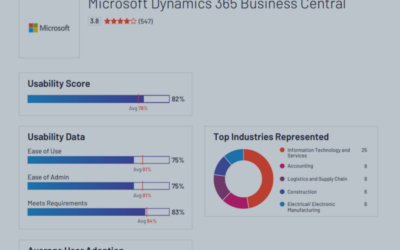While the term “ERP” was coined decades ago, the solution has really gained momentum in the last several years, helping to redefine how we do business. How has ERP developed over the years, and what is the anatomy of a modern ERP system? In this post, we’ll talk about modern ERP software, what you should look for and what you can expect from this leading business solution.
Multiple Modules, Unified
Enterprise Resource Planning software comprises various parts, or “modules.” These modules meet requirements specific to various departments within a company. They do not, however, function independently. All modules within modern ERP software come together within the solution in a central database. In this way, data is consistent across departments, and all stakeholders at a company can access and benefit from real-time, consistent data, with the end goal being to reduce manual processes and streamline workflows.
Common Modules in Modern ERP Software
As a “modular” solution, ERP extends one major advantage to today’s businesses—it allows you to piece together the parts that your business needs to succeed.
Most ERP solutions are composed of 5 core modules. These are:
- An HR module for employee management.
- A CRM module for customer service management.
- A supply chain management module for production and shipping.
- An inventory management module.
- A Financial management module for the business office.
With data from all these modules centralized in a single dashboard, businesses can also use modern ERP software to glean important business insights. The best in ERP offers extensive reporting capabilities, so that businesses can get the most out of this essential data.
Besides these core modules, the best in today’s ERP must also feature mobile capabilities. Cloud ERP with mobile support allows your team to perform well on the go and access everything they need to do their jobs no matter where the day takes them.
Finding the Right Fit
Most businesses can benefit from these five core modules, but there are some industries that require very specific solutions. Modern ERP software can also come in industry-specific versions. These feature modules required by the unique business demands of certain spaces. A company in manufacturing, for example, might need a module that supports Engineering Change Control or Material Requirements Planning. By working with an ERP consultant, companies can find their own industry-specific ERP or design their own modern ERP software to answer their business needs.
Ready to learn more about modern ERP software and find your own perfect fit? Get in touch with our team of experts today.




